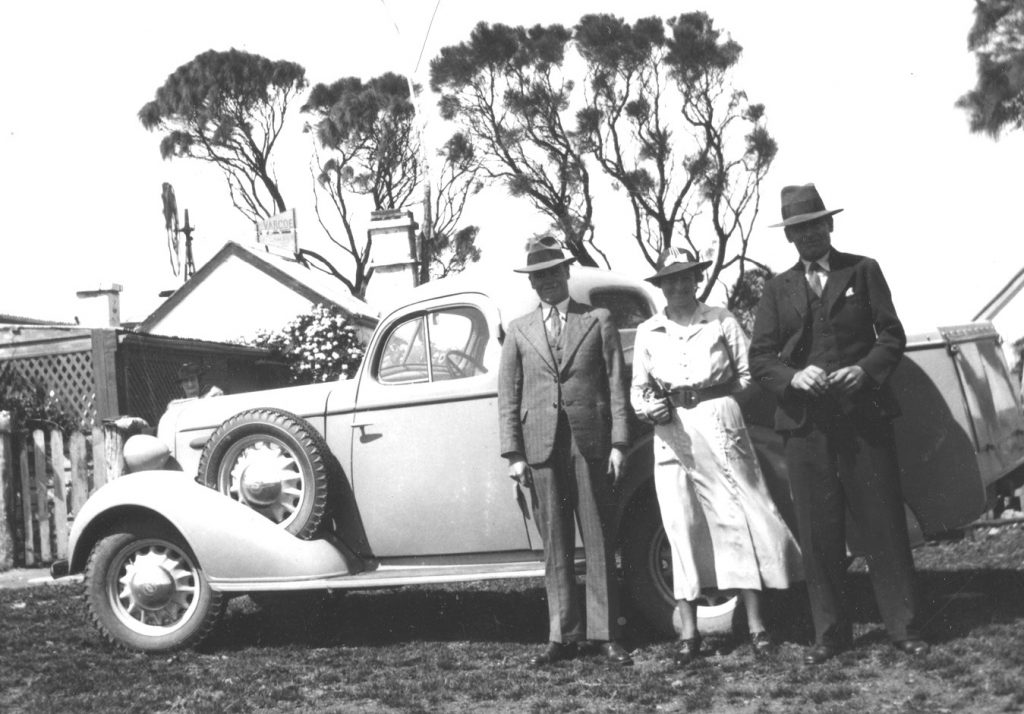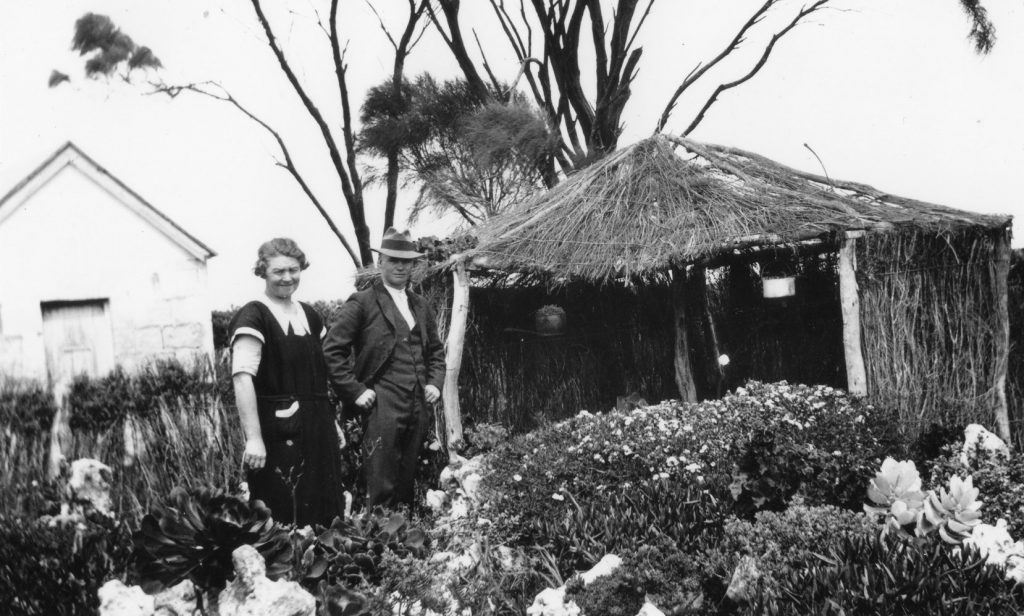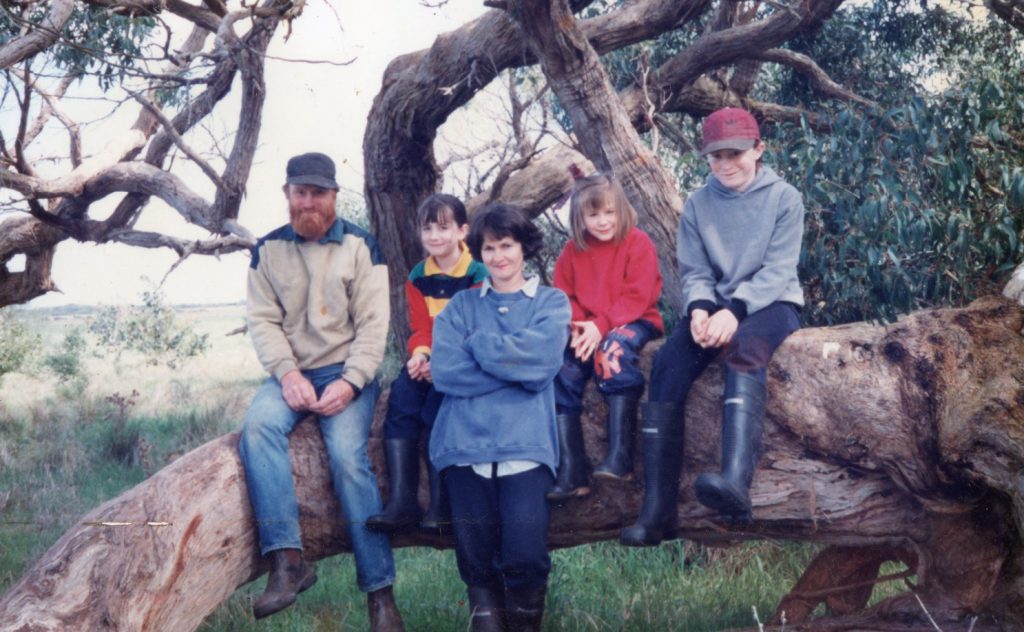The story of Hutt Bay Wetland – in the words of Robert Thompson
Robert Thompson has very kindly shared the following history of the Hutt Bay Wetland, including his family’s 140 year connection to the area, and the reasons for their decision to donate the wetland to Nature Glenelg Trust:
My great-grandfather, William Joseph (Bill) Thompson arrived at Port MacDonnell with his parents, two older sisters, and two younger brothers in 1861, only a year after Port Mac was proclaimed as a town. Young Bill Thompson had a few different jobs as he grew up in the small town, eventually becoming a carter of goods to and from the very busy port in the 1870s.
Bill would travel as far inland as Naracoorte with his horses and cart making deliveries and picking up goods. Bill decided he needed some land near Port MacDonnell to keep his horses and eventually purchased Section 677.
In 1877, Bill married Anna Klintworth and they built a small house in the south-east corner of this block. Typical of the time, Anna’s parents had both migrated to South Australia. Her mother’s family were Irish immigrants and her father was Fred Klintworth from Zeven in Germany. Life would have been hard for Bill and Anna, and their expanding family of five girls and one son. I’m not sure where they all fitted in those people in the tiny house but that was reality for the small settlers in the late 19th century.
Bill and Anna didn’t have a well or water tank at their house, so water had to be collected from a spring in a swamp-land area a couple of hundred metres south of the house. Eventually Deb and I would own this land, then known as Block C (later to become Section 867) and the other swampy land west of there, Block B. Carrying of water from the spring only stopped when my grandfather Fred built a limestone rain water tank, probably around 1900. There was an abundance of snakes in the swamp, so it probably wasn’t anybody’s favourite job walking down to the spring in the middle of summer!
Gradually as the years went by, young Fred left school and worked with his father and more land was added to the farm. Apart from farming, Bill and Fred also occasionally got work building roads in the district. This was a common occurrence for the small landowners to try an obtain income away from their farms, which were usually of insufficient size to be sustainable. Working in the woolsheds was another form of off-farm income that many of the locals, Fred included, were involved in on a seasonal basis. They would travel all over the country, sometimes walking or by bike or train to get to the next shed. It was while working at a shed in Victoria that Fred contracted polio, which left him with a withered left arm.
Fred was a man I greatly admired. He was a man of few words, but when he did speak it made a lot of sense. He was a tough as old boots and although he could no longer shear, he came back to the farm, vowing that he could still cut wood, trap rabbits and shoot his rifle as good as anyone else.

Fred eventually obtained the lease of Block C with the swamp section covered in Tea Tree and the higher sand dune area south of the swamp, dominated by Dry-land Tea Tree, wattles, and currant bush. In those days native vegetation was looked on as if it were almost a weed, something you had to get rid of in order to make the land ‘productive’. Fred was an enthusiastic follower of this principle. My brother Bill and I quite often have a chuckle on a boiling hot day, that this would have been the type of day that Fred would be down in the swamp, cutting down the Tea Tree!

My father Gordon also joined the family farm after leaving school. Block B, 250 acres of low lying swampy land joining the western end of Block C, had also been added to the Thompsons’ farm. Fred and Gordon had different ideas on the way things should be done. Gordon was possibly ahead of his time in wanting to keep what remained of the native vegetation on their farm, whereas a ‘good’ farmer was one who was knocking it down.
In 1991 my mum Em, my wife Deb, and I fenced off 50 acres of mainly stringybark, about a kilometre north of the old house. Dad didn’t live to see this happen but it was certainly something he had wanted to do.

Deb and I are also very keen on conserving what is left of our native vegetation and have planted thousands of trees around our farm over the years. In the 1980s we collected seed from a magnificent old Dingley Dell Gum near the corner of Hutt Bay Road and Thompson Lane. It was bent almost at a right angle by the wind. We made a plantation from the seedlings we raised, on the sandhill of Block C (now Sec 867). Very shortly afterwards the iconic tree died. Who knows how old it would have been.
Our daughter Rose has also continued the family theme of being interested in environmental issues and after university obtained employment with Nature Glenelg Trust, an environmental group specialising in restoration of wetlands. For many years Deb and I have thought that we’d like Section 867 and Block B to be eventually taken over by an organisation interested in preserving it as a wetland. We just didn’t see how it could be accomplished.
After Rose started work with NGT, she told us of some ways that they were hoping to acquire and protect wetland areas. We wondered if this would be a possibility for our land. With this in mind we had a meeting some years ago with Mark Bachmann, Manager of NGT, and the first tentative steps were taken in ensuring that our two blocks would be retained as a wetland. There have been quite a few hurdles along the way and much thought by Mark went into the process of how we could pass the land to NGT, with our family also obtaining some benefit from the transaction. The solution for us was to donate the land to NGT, which is a charitable, not-for-profit environmental group, in two stages. This meant that we could claim a tax benefit over a certain number of years, which is a win for us and also for NGT, who will now permanently preserve, restore, and protect the wetland area. NGT took over Section 867 a couple of years ago and the transfer of Block B is currently underway.
This is a great outcome for all concerned.
Robert Thompson, 3rd of February 2019.
